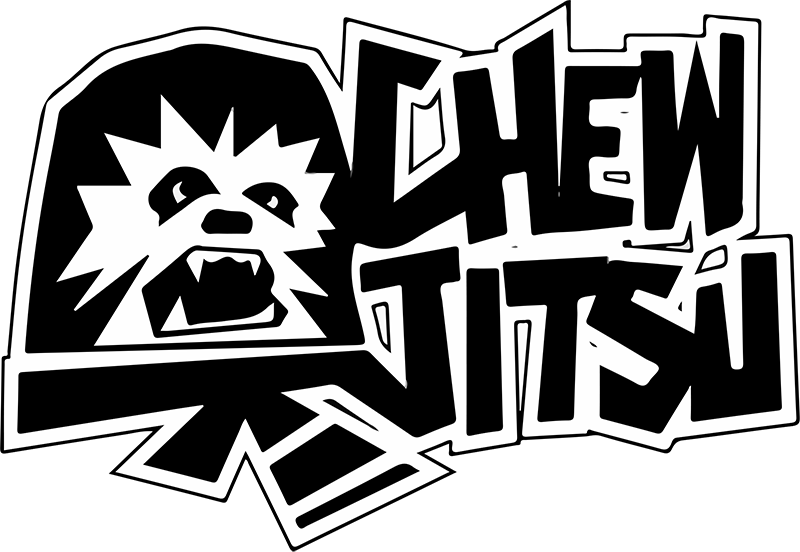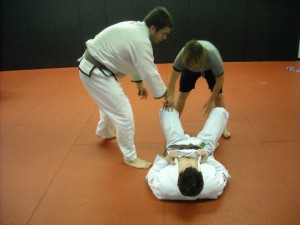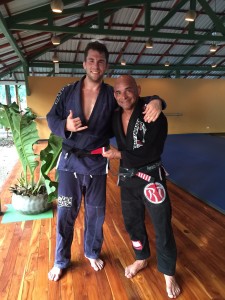Eliminating Anxiety And Self Doubt In Brazilian Jiu-jitsu : A Mental Tip
I feel like confidence (or a lack of) and anxiety can be issues for all of us sometimes. Whether it’s working on a new position or a weak one, or maybe moving up to a new belt level in Brazilian Jiu-jitsu. There are times when we can struggle with anxiety and negative thinking. This happens to all of us! After reading through this blog post I hope to arm you with a training tip that you can use deal with this kind of stuff.
It’s a bit different than the typical technique or training advice. It’s more concerned with your mentality and harnessing the way you reinforce yourself.
Reinforcement Affects Performance
Several years ago Stephanie L. Stolz of the Missouri Western State University did an experiment. The experiment was to determine how confidence and positive reinforcement affected performance. (you can read about the study here http://www.webclearinghouse.net/volume/2/STOLZ-TheImporta.php )
The findings showed that positive reinforcement increases overall confidence and confidence increases performance. One reason she theorized was that a higher level of confidence acts like a buffer against various anxieties associated with whatever we are doing.
What she also found was that negative reinforcement had an effect on performance as well. As you might expect, it decreased performance. It seems sorta like common sense to me, but let me explain how you can have a direct effect on your game by simply reinforcing yourself.
Control Your Inner Dialogue
Whether its is in a competition or in the gym. We have this voice in our head. A sort of inner dialogue. I know you’re familiar with this voice. It’s the voice that talks to you during the roll (and life). It tells you to keep fighting, pull harder on the grips, go for it. It’s also the same “voice” that talks to you and tells you that the guy on top feels super heavy or says “dammit,” when you get your guard passed.
For better or for worse, this inner dialogue is constantly going, and what it says to you is greatly dependent on your overall confidence and mental state at the time. When you lack confidence you are more prone to being negative, whereas if you feel like you are in a good place, you’ll be more likely to remain positive.
Useful advice I give to my students concerning this is attempting to harness that inner dialogue. If you are controlling your thoughts and the way you’re perceiving the situation. You control your mentality and the way you approach the situation.
Two Questions
- Have you ever been in the gym and your instructor sticks you in one of your worst positions and you start to get negative thoughts or start second guessing yourself?
Now these negative thoughts about how bad your guard or side control are, could all be relatively true. But if you get fixated and repeat this kind of stuff in your head, it’s going to take root and facilitate a negative outlook on the techniques and positions you’re trying to use. Think about it. If you keep telling yourself how bad you are at something. You’re mentally reinforcing this negative outlook, and it’s hard to physically improve your game if you mind isn’t on board.
- Let me ask you one more question. Have you ever been on the mats and saw the perfect opportunity but were unable to execute because you felt some sort of worry or anxiety?
This is a clear sign of lack of confidence. When you are more confident on the mat you will go for the techniques and worry about what to do if it goes wrong, after. We all have apprehensions and have to remain calculated on the mat. But going back to the study. If you have the confidence to act as a buffer against anxiety then it will be easier for you to take chances and go after the brief openings that pop up during a roll. Yes you might mess up along the way but those failures will lead to success eventually.
Fake It Before You Make It
Now coming to the “Fake it before you make it” idea. If you’ve ever heard researchers talk about confidence. You may have heard about something that equates to fake it before you make it. Essentially what scientists have learned, and it makes perfect sense, is that when we go about things with confidence mentally, even if we aren’t completely confident. Our bodies will attempt to follow suit. They’ve even found that the way you walk around and posture can have an impact on your hormone levels and overall feeling of confidence. (check out this Ted talk about it http://blog.ted.com/10-examples-of-how-power-posing-can-work-to-boost-your-confidence/ )
Meaning confidence is largely based on your perception and the way you go about things. If you attempt something in an unconfident way and reinforce yourself with negative thoughts your body will follow and you’re results will line up accordingly.
But if you step onto the mat and say to yourself, “I’m going to sweep someone today.” Even if you’re sweeps aren’t the best. By simply adjusting your mentality on the situation, your chances of success go up. By telling yourself that you are going to do something and going about it confidently you’re sort of reprogramming yourself. Your body will in turn start searching for a way to make it happen. This will facilitate a full fledge commitment to something rather than a half-hearted attempt.
An “A-HA” Moment As A Brown Belt
An example of this in my own training came with my old training partner Kyle Cannon. Kyle was one of my best training partners in Brazilian Jiu-jitsu for a long time. When I first started training with him, he routinely just beat me like I stole something. I remember getting anxious and nervous when he would come over and pick me to roll.
It was already determined in my mind that Kyle was going to beat me. Our rolls took a predictable pattern. I would keep it competitive but he would eventually take over and thrash me.
One of the “a-ha” moments I had was when I realized how different my mindset was when I was getting ready to roll with him, opposed to rolling with other people, even other black belts (I was a brown belt at the time). When I was rolling with other people, even people that I knew were technically better than I was, I still had confidence in what I was doing. But when I was going with Kyle I was already defeated before we even slapped hands and pounded knuckles.
The “a-ha” moment for me was eliminating the negative thoughts in my own head when it was our turn to roll. I did this by visualizing myself using the techniques successfully whenever I felt like I was getting overly nervous or anxious. What was so surprising was that when I did this I felt less anxiety and was more relaxed during the roll. Still aggressive but not nervous. Now, I didn’t start beating Kyle or anything like that. But overtime I felt that by changing my mindset going into the roll allowed me to play my game more effectively. It made it possible for me to take more chances when I saw opportunities open up. Which in turn made the rolls more competitive and led to me improving.
This focus on my techniques and positive reinforcement has help me deal with the pre competition anxiety I used to deal with. It’s made competing so much easier and fun.
I’m A Black Belt And I Still Do This
I still use this idea of harnessing my inner dialogue for my everyday training. For instance when I’m trying to hit new techniques or really focusing on a particular area of my game. I reassure myself that I’m going to hit the techniques or be successful from the positions.
Almost always, the outcome from this mental reassurance or deliberate focus makes a huge difference. By mentally committing myself, I physically commit. Instead of just defaulting to saying that I’m not good with the move or position, or whatever excuse I could make up. By doing this I extinguish a lot of the negative talk I would normally have in my mind.
When you commit to something mentally you burn the proverbial bridge behind you and force yourself to figure out how to make it happen. This is true of BJJ and of life.
If you step on the mat believing you can do something and go after it, you’d be surprised what you can do. If you step on the mat defeated mentally and convinced you’re not going to be successful , then you’re probably not. Changing your mindset takes time and continually reassurance.
Here’s The Take Away
When you’re getting ready to step on the mat or maybe even right in the middle of a roll. If you catch yourself getting into that negative sort of, “I’m not good at this” mindset. Reverse it by telling yourself you can and you will. Drown out the negative dialogue by simply directing your full focus on the technique you plan to use. You’ll be surprised at the difference this makes.
As I said, the difference isn’t necessarily immediate. But remaining confident and focused, you help free yourself of anxiety and increase your ability to improve by being able to take hold of the opportunities that present themselves. When your mind is full of thoughts and images of you successfully using the techniques. It’s much harder for your mind to take a negative slide.
So the next time you step on the mat or before a competition. If you feel your mind going towards the negative. Catch yourself and reinforce it with positive inner dialogue and visualizing the techniques you plan to use. It can be as simple as just telling yourself that you’re going to hit the move you’re attempting.
If you have any questions, feel free to shoot me a message.
As always, thanks for reading!
Chewy







As humans do, we are bound to make mistakes. Yet some mistakes are overemphasized and retained by some people around us and are blown out of proportion. This labels us for life or for the rest of our stay in a certain post. Especially if our critics do not belong to our circle of influence. Instead of trying to get less negative feedback, I would suggest trying to change your own interpretation of what it means. Once I was at Bjj championship and saw the Ukrainian team’s coach who didn’t commend his sportsmen much even after they won. I remember them coz they care everywhere huge banner Biotexcom with them. Appears that it was their sponsor emblem, but looks not typical at all. Decide what it means and what you want to do with it. For me the most important thing to remember is that I don’t aim to please everybody. I’m open to all feedback, but I make the final decision about what’s right for me. In the end I think it’s not so much external negativity that affects us, but it is our internal critic that translates it.